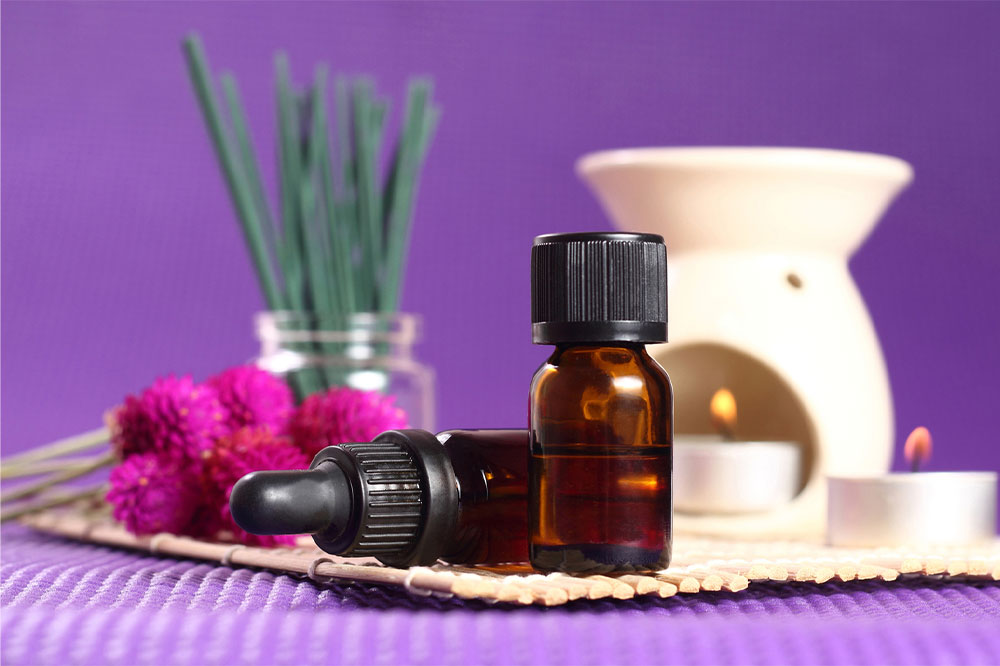Top 5 Skincare Ingredients That Can Trigger or Worsen Eczema Flare-Ups
This comprehensive article discusses five common skincare ingredients that can worsen eczema, including parabens, certain moisturizing agents, synthetic fragrances, essential oils, and preservatives. It provides detailed insights into why these ingredients are problematic and offers practical advice for choosing eczema-friendly products. Ideal for individuals with sensitive skin, the guide emphasizes the importance of reading labels, opting for natural products, and consulting dermatologists to prevent flare-ups and maintain healthier skin.

Top 5 Skincare Ingredients That Can Trigger or Worsen Eczema Flare-Ups
Skincare products are essential for maintaining healthy, nourished skin, but for individuals with eczema or sensitive skin, certain ingredients in these products can cause more harm than good. While many formulations aim to clean, moisturize, and protect the skin surface, they often contain synthetic chemicals and additives that can disrupt the skin barrier, leading to increased irritation and flare-ups. Choosing the right products—preferably organic, fragrance-free, and free from harmful chemicals—can significantly reduce the risk of worsening eczema symptoms. This comprehensive guide explores five common skincare ingredients known to aggravate eczema and offers practical tips on how to avoid them, helping sufferers manage their condition more effectively and maintain healthier skin.
Understanding which ingredients to steer clear of can empower eczema sufferers to make informed choices and prevent unnecessary skin irritation. Let’s delve into the specifics of these ingredients, why they are problematic, and how to identify them on product labels.
1. Parabens: Preservatives That Could Exacerbate Sensitive Skin
Parabens, a class of preservatives such as methylparaben, propylparaben, butylparaben, and isobutylparaben, are widely used in cosmetics and personal care products to extend shelf life by preventing microbial growth. While they serve a practical purpose, accumulating evidence suggests that parabens can penetrate the skin and act as endocrine disruptors, potentially causing or worsening skin conditions like eczema. For those with sensitive or reactive skin, parabens can lead to increased irritation, redness, itching, and flare-ups. Dermatologists often recommend avoiding products with these preservatives, especially if you notice skin reactions after use.
In addition to skin irritation, parabens can interfere with hormonal balances and have been linked to other health concerns, further emphasizing the importance of choosing preservative-free options or products labeled as paraben-free.
2. Moisturizing Ingredients That Might Aggravate Eczema
While moisturizing is a vital aspect of eczema management, some ingredients considered as safe for most are actually problematic for sensitive skin. Key moisturizing agents such as lanolin, propylene glycol, petroleum jelly, and mineral oils can sometimes cause irritation or allergic reactions when used by eczema sufferers.
Lanolin, a natural wax derived from sheep’s wool, can be allergenic for some individuals and trigger allergic contact dermatitis. Propylene glycol and petroleum-based products, although effective in creating a barrier to retain moisture, can irritate compromised skin or exacerbate existing eczema symptoms, especially if not properly refined. These ingredients may also contain impurities or contaminants like polycyclic aromatic hydrocarbons (PAHs), which are associated with increased skin sensitivity and inflammation. Therefore, selecting hypoallergenic, refined, and fragrance-free moisturizers is crucial for managing eczema effectively.
3. Synthetic Fragrances: Hidden Culprits Behind Eczema Flare-Ups
Many skincare and cosmetic products contain fragrances to provide a pleasing scent that enhances user experience. However, synthetic fragrances—comprising hundreds of chemicals—are among the leading irritants for eczema-prone skin. These fragrances are often derived from petrochemicals and can contain irritating compounds like phthalates, benzene derivatives, and aldehydes. Even products labeled as 'unscented' may contain masking agents or added chemicals to eliminate odors, which can still trigger allergic reactions or dermatitis.
For sensitive skin and eczema sufferers, refraining from using fragranced products or opting for fragrance-free formulations can markedly reduce the risk of irritation and flare-ups. Always check labels for terms like 'fragrance,' 'perfume,' or 'parfum' and consider using hypoallergenic, dermatologist-tested products designed for sensitive skin.
4. Essential Oils: Natural but Potentially Harmful for Sensitive Skin
While essential oils like tea tree, mint, citrus, and lavender are often promoted for their natural healing properties, they can be problematic for individuals with eczema. These oils are highly concentrated and can cause dryness, redness, or burning sensations when applied directly or used in skincare formulations. In some cases, essential oils can sensitize the skin or provoke allergic reactions, especially when used daily or combined with other irritating ingredients like synthetic fragrances.
Moreover, citrus oils such as bergamot and lemon contain photosensitizing compounds that increase the skin’s sensitivity to sunlight, leading to further irritation. For eczema-prone skin, it’s best to avoid essential oils or seek guidance from a dermatologist before incorporating them into your skincare routine. Diluting essential oils properly and conducting patch tests can also help prevent adverse reactions.
5. Controversial Preservatives and Additives
Preservatives like cocamidopropyl betaine, hydroquinone, and formaldehyde releasers are common in various skincare, haircare, and cosmetic products. When used excessively or in high concentrations, these ingredients may weaken the skin’s natural barrier, cause dryness, or trigger allergic dermatitis. Cocamidopropyl betaine, a surfactant found in shampoos and cleansers, has been linked to skin irritation and contact dermatitis in sensitive individuals.
Hydroquinone, a skin-lightening agent, can cause redness and irritation, especially when used over large areas or for prolonged periods. Formaldehyde-releasing preservatives can also slowly release formaldehyde gas, which is highly allergenic and carcinogenic. For those with eczema, avoiding products containing these preservatives is essential to prevent further skin damage and flare-ups.
Practical Tips for Eczema-Friendly Skin Care
Always read labels carefully and identify ingredients that may trigger reactions.
Choose fragrance-free, hypoallergenic products formulated for sensitive skin.
Opt for natural and organic skincare options whenever possible.
Conduct patch tests before introducing new products into your routine.
Consult a dermatologist for personalized skincare advice, especially if you experience persistent or severe eczema symptoms.
Final Thoughts
Managing eczema requires careful attention to the ingredients in your skincare regimen. While it may seem overwhelming at first glance, understanding which ingredients are harmful and how to avoid them can make a significant difference in controlling flare-ups and maintaining healthy skin. Always prioritize products with gentle, non-irritating ingredients, and don’t hesitate to seek professional advice if you're unsure about specific formulations. By making informed choices, you can protect your skin from irritation, reduce flare-ups, and enjoy healthier, more comfortable skin every day.
.




